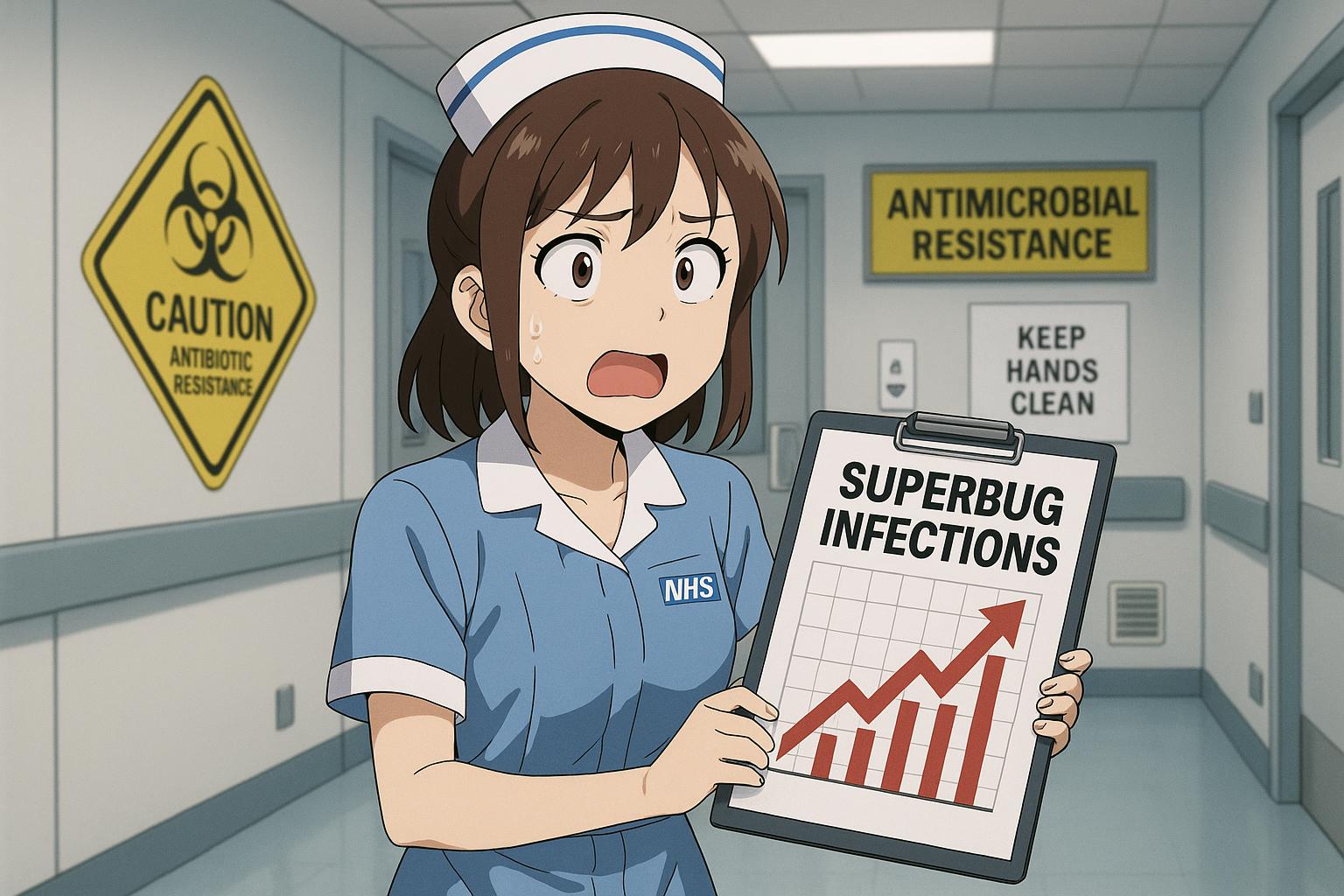Nurses in the UK are sounding alarm bells over the rising incidence of antibiotic-resistant infections, which they attribute to an influx of patients returning from cosmetic surgeries abroad. Recent reports indicate that NHS hospitals have witnessed a concerning 30 per cent rise in cases of such infections, which can have dire consequences if they penetrate the bloodstream. The issue has become increasingly pronounced as more individuals opt for cheaper surgical options overseas, typically in countries like Turkey and various Eastern European nations, in light of lengthy NHS waiting lists and prohibitive costs for domestic procedures.
A report by the British Medical Journal highlighted a striking trend: approximately 5,000 patients underwent weight-loss surgeries abroad in 2024, surpassing the 4,500 procedures conducted by the NHS in the previous year. With NHS waiting times for weight-loss surgery extending up to four years, patients are becoming disillusioned, often turning to social media promotions for all-inclusive surgical "holiday packages." At a recent Royal College of Nursing annual conference, it was revealed that the standard of infection control in many non-EU clinics can be alarmingly lax compared to UK standards, heightening risks for patients.
Nykoma Hamilton, an infection control nurse from Fife, Scotland, articulated the growing apprehensions within the nursing community. She noted an increase in patients returning home colonised with extensively drug-resistant organisms, particularly carbapenem-resistant bacteria, which she described as the “absolute granddaddy of resistance.” The situation has prompted concerns about the entire healthcare system, as returning patients often exhibit horrific wounds, severe infections, and even sepsis.
One stark example shared by Nicola Smith, a district nurse from Slough, involved a young woman who sought skin removal surgery abroad following significant weight loss. Just weeks post-surgery, the patient's thigh wound was barely closed and tissue was dying, with the woman developing sepsis. Smith remarked on the tragic irony of the woman being more focused on the luxury of her recovery hotel than the grave complications of her post-operative care. “It’s really sad as this procedure was sold to her like a holiday package,” Smith said. “A hotel is lovely, but it’s no place to be when you're in pain, when there's an infection.”
The British Association of Aesthetic Plastic Surgeons has echoed these concerns, warning about increasing instances of patients returning with treatment-resistant bacteria, thereby not only endangering themselves but also the wider public. Indeed, recent statistics from the UK Health Security Agency reveal that the number of antibiotic-resistant infections has surged by 7 per cent before the pandemic, instigating fears about a potential "post-antibiotic era." Projections estimate that drug-resistant infections could lead to 10 million deaths annually by 2050, raising significant alarms about the future of medical safety.
Nurses have voiced the need for better information for patients considering overseas surgery, emphasising that while individuals should have the freedom to choose where to undergo treatment, they must be equipped with the knowledge to evaluate the safety and quality of clinics. Some have suggested that foreign clinics should offer insurance policies to cover complications, enabling the NHS to reclaim costs incurred by the treatment of patients who fall victim to inadequate care abroad.
The rising trend of medical tourism complicates an already strained NHS. Health Secretary Wes Streeting has cautioned individuals to "think very carefully" before seeking treatment overseas, underscoring the burden placed on the NHS as it grapples with the fallout of these decisions.
As the landscape of healthcare continues to evolve, the prevalence of superbugs and antibiotic-resistant infections poses a formidable challenge. Comprehensive strategies to enhance global infection control standards, improved patient education, and robust public health responses are critical to combat this ominous trend that, if unchecked, threatens to reverse the substantial medical advances of recent decades.
Reference Map
- Paragraphs 1, 2, 3, 4, 5, 6, 7, and 8: [1]
- Paragraphs 5, 6, and 8: [2]
- Paragraph 3: [3]
- Paragraphs 4 and 5: [4]
- Paragraph 6: [5]
- Paragraph 6: [6]
- Paragraph 8: [7]
Source: Noah Wire Services
